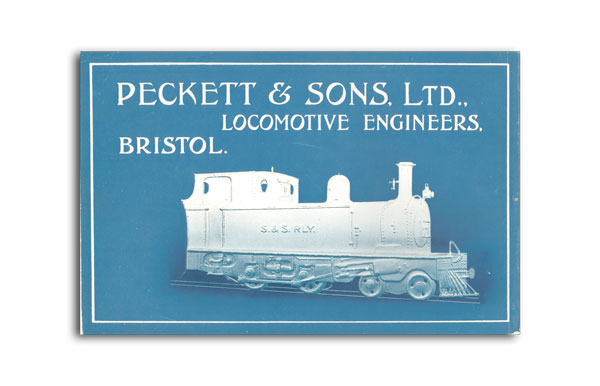Description
This beautifully designed and printed booklet is a bit of a puzzle. At first sight it looks as if it is going to be a locomotive catalogue, but two thirds of the space is devoted to photographs of the works and machinery, from “The Private Office” to the rather unprepossessing “Back Yard” and to the even more unprepossessing “Condensing Reservoir”. Surprisingly, no Drawing Office is shown. It also states that the works covers 5 acres “with a further 8 acres for extension”. Was it perhaps intended to use the booklet as part of a prospectus seeking investment, or offering the business for sale? There is a further puzzle in that the design is firmly early 1920s, but the latest locomotive illustrated carries the works number 1859, which left the works in June 1932.
The company began trading in 1864 at the Atlas Engine Works, St. George, Bristol, as Fox, Walker and Company, building neat, well made four and six-coupled saddle tank engines for industrial use. They also built stationary engines and pioneered steam tramcars, the first being tested in Bristol in 1877. They were taken over by Thomas Peckett in 1880, becoming Peckett and Sons, Atlas Engine Works, Bristol. The company acquired limited liability some years later. By 1900 the two companies had built over 400 locomotives.
The company continued producing a variety of small industrial and shunting engines at their factory located in Bristol. They became specialists in the field, with very precise specifications and standardisation of parts, and built some of the prettiest small locomotives with copper capped chimneys and polished brass fittings, ever made in Britain. They could however rise to the occasion for special orders like the largest engine the firm ever made, a 0-8-0 built in 1931 for the Christmas Island Phosphate Company.
During both World Wars, the works were especially busy, but by 1950 trade had largely dried up and, although in 1956 an attempt had been made to enter the diesel-mechanical market, the last steam engine was produced in 1958 and the company was taken over by Reed Crane & Hoist Co Ltd on 23 October 1961, which itself later went into liquidation.
This is a lovely publication giving a rare insight into the works of a private locomotive builder, with equipment ranging from the Fox Walker days up to a modern hydraulic flanging machine.

Reviews
There are no reviews yet.